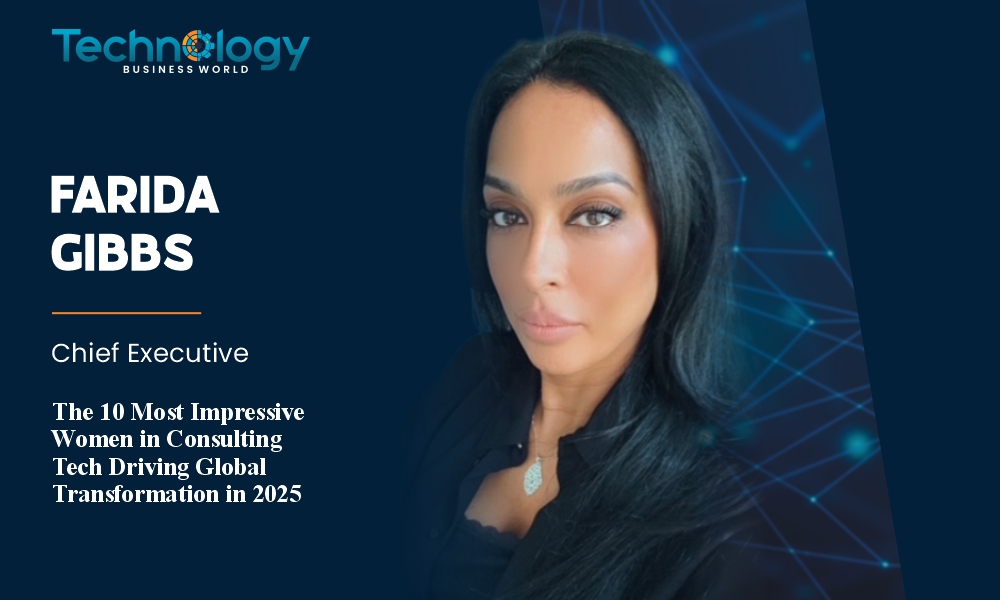Leading with Purpose in a Data-Driven World
In a world increasingly driven by algorithms, automation, and artificial intelligence, Faten Abdullatif stands as a beacon of ethical innovation and data-centric leadership. With over 15 years of experience across the UAE’s public and private sectors, Faten has not only mastered the intricate sciences of AI and analytics but has become a respected voice for responsible AI, strategic transformation, and inclusive leadership.
As a Chief Data and AI Officer and independent consultant, she has reshaped data ecosystems, introduced AI frameworks across complex infrastructures, and advocated for policies rooted in transparency, fairness, and accountability. Her journey—from pioneering AI projects in transportation to advising academia—tells a compelling story of vision, resilience, and purpose.
Charting a Career at the Confluence of Data, Strategy, and Innovation
Faten’s journey into data science and AI began not with machines, but with a mindset—one that recognized early on the transformative power of data. Her expertise spans advanced analytics, statistical modeling, and machine learning, which she has applied to both public institutions and private enterprises across various sectors in the UAE.
She has built and led high-impact teams, crafted data strategies aligned with business objectives, and implemented large-scale analytics systems that have fundamentally altered how organizations make decisions. Her ability to connect technical rigor with business outcomes sets her apart—not just as a data scientist but as a transformative leader.
In 2022, Faten joined the Advisory Board of the MSc. Data Science Programs at Heriot-Watt University in Dubai, helping shape curriculum and industry collaboration. In 2023, her efforts culminated in being named Chief Data Scientist of the Year at the Dubai Future Data Summit, underscoring her influence in shaping the AI and data landscape across the Middle East.
Transforming Urban Mobility through AI:
One of Faten’s most defining professional milestones was her tenure at Dubai’s Roads and Transport Authority (RTA), where she led the data and analytics function for the Rail Agency. Under her leadership, AI initiatives became foundational to public transport services.
Among the most innovative initiatives she spearheaded was a predictive maintenance and digital twin system that revolutionized operational planning and service reliability. These solutions not only enhanced operational efficiency but also positioned Dubai as a leader in smart transportation on the global stage.
Her approach was not just to deliver a solution, but to build internal AI capability within the organization. By upskilling teams, implementing governance frameworks, and creating sustainable AI pipelines, Faten laid the foundation for a future-ready, data-first agency.
Faten’s Leadership Style: Strategic, Agile, and People-Centric
At the core of Faten’s success lies a distinctive leadership philosophy—one that balances technical excellence with ethical integrity, and innovation with inclusivity.
1. Vision-Driven Strategy
Faten starts every initiative by anchoring it to clearly defined business goals and measurable KPIs. She believes that AI and data must drive tangible value and align with the broader mission of the organization.
2. Agile and Iterative Execution
Her teams follow agile methodologies—iterating quickly, learning from each cycle, and continuously refining models to improve performance. This enables organizations to reduce risk while increasing the pace of innovation.
3. Transparent Governance
A staunch advocate of data ethics, Faten builds governance structures that ensure accountability, fairness, and transparency. Whether through establishing ethical review boards or deploying model validation systems, she emphasizes trust as a core currency.
4. Human-Centric Empowerment
Faten places immense value on data literacy. She believes that building a data-driven culture begins with empowering non-technical teams to understand and question data. Her leadership encourages open communication, collaborative problem-solving, and continuous learning.
The Responsible AI Advocate: Ethics at the Core
Faten has been a consistent voice for responsible AI adoption—a theme that permeates her work and vision.
She believes that AI should be ethical by design, not retrofitted post-development. To ensure this, she promotes:
- Robust Ethical Frameworks: Customized to the organization’s values and regulatory environment.
- AI Governance Committees: To review high-risk use cases and enforce accountability.
- Explainable AI: Ensuring that end-users and stakeholders understand how decisions are made.
- Ongoing Monitoring: Post-deployment audits to detect drift, ensure fairness, and improve trust.
She emphasizes that organizations must foster a culture of responsibility where ethical considerations are discussed across technical and non-technical teams alike.
Scaling AI Across Organizations
Despite AI’s promise, Faten is candid about the barriers organizations face in scaling AI initiatives:
1. Infrastructure Limitations
Building scalable AI systems requires significant investment in cloud platforms, computing resources, and real-time data pipelines. Many organizations are still catching up.
2. Talent Gaps
There’s a shortage of talent that combines AI expertise with domain knowledge and communication skills—critical for deploying enterprise-grade solutions.
3. Strategic Hesitation
AI’s return on investment is often delayed and complex to measure, making leadership hesitant to move beyond pilots.
4. Lack of Governance
Without clear roles and risk protocols, accountability is blurred—especially when AI outcomes affect customers and operations.
5. Low AI Literacy
Many stakeholders still lack the understanding necessary to engage with or trust AI systems, which hinders adoption.
To address these, Faten advocates for cross-functional collaboration, strong executive sponsorship, and ongoing education across the enterprise.
The Future of AI: Faten’s Vision
Faten is a futurist as much as she is a strategist. She sees several key trends shaping the AI and data science landscape over the next five years:
1. Generative AI Maturity
GenAI is no longer experimental—it’s being deployed across customer service, content creation, and software development. The focus now shifts to governance and use case optimization.
2. Multimodal AI
AI models that can simultaneously process text, audio, video, and sensor data will offer a more holistic understanding of complex environments—critical for industries like healthcare, security, and transportation.
3. AI-Native Software Development
From coding assistants to testing bots, AI will become embedded into the entire software development lifecycle, accelerating speed and quality.
4. Rise of Small Language Models
To address data privacy, latency, and cost, smaller, fine-tuned models will gain traction over massive general-purpose LLMs—especially in regulated industries.
5. Autonomous Agents
AI agents that can reason, plan, and take actions independently will revolutionize everything from customer support to logistics.
Women in AI: From Representation to Influence
As one of the prominent female leaders in AI, Faten is acutely aware of the gender imbalances in the field—but she’s also optimistic.
“We are seeing more women in senior roles across AI strategy, policy, and R&D,” she notes. “They’re shaping conversations around fairness, inclusion, and impact.”
Faten highlights how female leaders often bring human-centered values to AI development, contributing to more inclusive designs, ethical decision-making, and diverse hiring practices. She encourages organizations to:
- Support flexible work environments
- Invest in STEM programs targeting young women
- Create mentorship pipelines to accelerate leadership
She envisions a future where women aren’t just part of the conversation—they’re leading it.
A Future Built on Human-AI Collaboration
Faten believes the future of AI isn’t about replacing humans—but amplifying them. She champions a model of hybrid intelligence where humans and machines work together to solve complex challenges.
- She sees AI playing a pivotal role in:
- Healthcare Innovation: Supporting diagnostics, drug discovery, and patient engagement.
- Financial Services: Financial institutions are integrating GenAI capabilities within their chatbots for advisory on investment, commercial offers, and financial wellness. Digital banking continues to leverage AI for risk management, fraud detection, and regulatory compliance.
- E-Commerce and Retail: Advanced AI recommendation engines, AI chatbots and personalized experience at scale enhancing customer experiences and operational efficiency.
- Defence and Security: AI is increasingly utilized in broader surveillance, advanced threat detection and testing simulations to enhance cybersecurity strategies.
- Logistics and Transportation: GenAI will revolutionize digital twins deployments in smart cities, sustainable mobility solutions and resource optimization.
However, she cautions that with this power comes responsibility.
“The biggest threat to AI isn’t the technology—it’s the absence of trust,” Faten says. “Regulation, transparency, and governance will define the winners.”
She anticipates governments taking a more proactive role in AI regulation, enforcing standards around explainability, liability, and ethical design. As this new regulatory environment unfolds, organizations that embrace responsible innovation will lead the way.
Shaping the Future with Values, Vision, and Integrity
Faten Abdullatif’s story is one of quiet revolution—of changing systems, building frameworks, and challenging norms from the inside out. Through her work, she is not only enabling organizations to adopt AI, but teaching them how to do it responsibly.
Her journey serves as a roadmap for aspiring leaders in AI and data science: lead with vision, build with purpose, and innovate with empathy.
As the world stands on the cusp of the next digital frontier, voices like Faten’s are more important than ever—reminding us that the future of AI doesn’t just belong to machines, but to the people who choose to wield them wisely.







